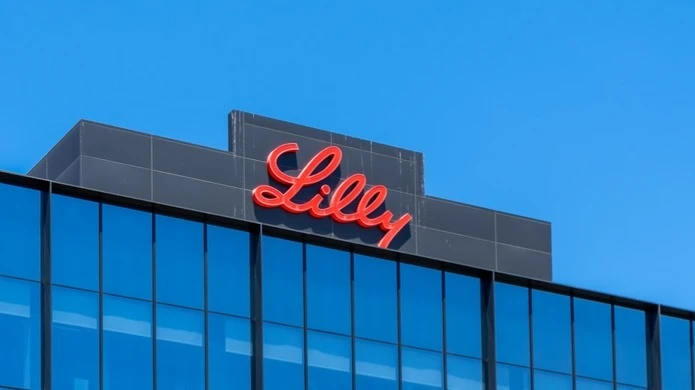Eli Lilly's weight loss pill has passed one of the key phases of testing. Shares rose
By contrast, the shares of Eli Lilly's competitor, Ozempic manufacturer Novo Nordisk, fell 4%

US pharma giant Eli Lilly has reported successful results from a clinical trial of its experimental slimming pill in type 2 diabetic and overweight patients. Successful completion of a key phase of the trial paves the way for the drug to apply for regulatory approval. Against this backdrop, Lilly shares jumped almost 5%, while the securities of Danish rival Novo Nordisk, which is also working on an obesity pill, fell.
Details
Eli Lilly has announced that its experimental obesity pill orforglipron has successfully completed a key phase of clinical trials. The drug showed up to 10.5% weight loss in patients with type 2 diabetes and obesity or overweight. This category of patients is traditionally more difficult to reduce weight, notes Bloomberg.
"This is usually where we expect more challenges," Kenneth Custer, president of Lilly Cardiometabolic Health, said in an interview. - But the findings are really encouraging.
At the low dose, the subjects' weight loss was 5.5%, at the medium dose - 7.8%, at the maximum dose - 10.5%. For comparison: in the placebo group the result was 2.2%. There was also a decrease in blood sugar levels by 1.3-1.8%. Treatment was discontinued by 10.6% of patients due to side effects, mainly mild to moderate GI problems such as nausea, vomiting and diarrhea, compared with 4.6% in the placebo group, Eli Lilly reported.
Successful completion of this phase of the trial will allow the company to apply for regulatory approval of the pill: the pharma giant plans to do so by the end of 2025. "Given the results, we are acting as quickly as possible in preparation for filing for approval in different countries to meet the needs of patients who are waiting," Kenneth Custer added. - If the drug is approved, we are ready to offer a convenient once-a-day pill that can be scaled globally."
How did the stock react
At trading on August 26, Eli Lilly shares jumped almost 5% to $728.7. This became their maximum since August 6. The company's market value is now about 6% higher than it was at the beginning of the year. For comparison: the main U.S. stock index S&P 500 for the same period, on the contrary, added more than 9%.
Shares of Eli Lilly's main competitor, Danish Novo Nordisk, which is also working on bringing its obesity pill to market, fell almost 4% in trading in Copenhagen on Tuesday. Since the beginning of the year, the market value of the maker of Ozempic has gone down by more than 43%.
Context
Eli Lilly's announcement came less than three weeks after the publication of the results of a similar trial of orforglyprion in patients without diabetes. Then the maximum dose of the drug gave a weight loss of 12.4% over 72 weeks against 0.9% for placebo, but the results disappointed investors and brought down the company's shares by 15% in a day. The weaker-than-expected effect was seen by many as strengthening the position of competitor Novo Nordisk, whose Wegovy drug in tablet form showed an average 16.6% weight loss.
Injectable weight-loss drugs from Lilly and Novo Nordisk have already changed the approach to treating obesity, but it is pills that could be the key to the mass market, CNBC noted. It could grow to an estimated$95 billion to $150 billion by the early 2030s. Today, all of the most popular drugs are available only in injectable form, while tablet versions are easier to produce and administer, which could open access to therapy for millions of new patients. About 8 million people now use injectables, but according to Ken Custer, head of Lilly's cardiometabolic business, up to 170 million could potentially use them.
This article was AI-translated and verified by a human editor
